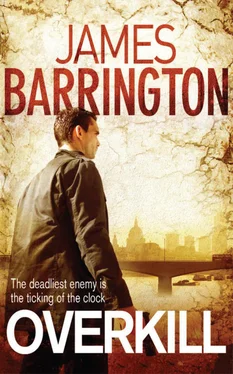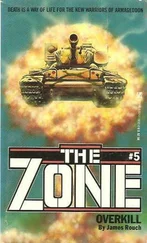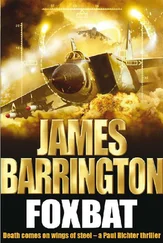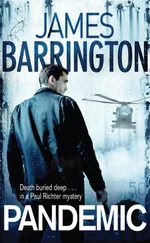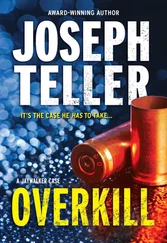Ross nodded, then turned to Richter. ‘Mr Beatty?’
‘I agree with Colin. Don’t forget that, according to Modin, the crew have been instructed to defend the vessel against any possible assault. The crew are experienced Spetsnaz personnel who probably outnumber us by slightly more than two to one – if we start a major diversion, my guess is that at least some of them will realize that it is a diversion and actually expect an attack. And that’s the last thing we want.’ He paused. ‘However,’ he added, ‘perhaps a minor diversion would assist.’ Ross nodded, so Richter told him what he had in mind.
Autoroute A26, vicinity of Couvron-et-Aumencourt
‘At last,’ Modin muttered, as the Russian convoy, now equipped with new tyres and with Gendarmerie vehicles in front and behind, was finally waved out of the parking area, en route to Calais. The articulated lorry was still there, waiting for the arrival of the tug and escort that had been sent from Britain.
‘Where will they take it?’ Bykov asked, glancing back at the lorry as the limousine pulled away. He had been very subdued since the convoy had been stopped, worried, Modin supposed, about his future career. Modin wasn’t worried. He knew his own career was over.
‘Britain, I expect,’ Modin said. ‘No doubt they will want to examine the weapon.’
‘I wish,’ Bykov said, ‘that we had been able to contact Moscow. The Minister will want to be informed.’
‘I’m sure he will,’ Modin replied. Minister Trushenko would not, he hoped, be informed about the seizure of the London weapon for some hours yet. Once he found out what had happened, Modin was not at all sure what Trushenko might do.
Gibraltar Harbour
The black combat suit supplied to Richter by 22 Special Air Service Regiment wasn’t exactly Savile Row. The bulletproof vest was bulky and heavy, but the Smith in its shoulder rig nestled comfortably under Richter’s left armpit. As well as a Hockler MP5SD – the version of the 9mm MP5 fitted with a silencer – on loan from 22 SAS, Richter carried a grey nav-bag he had borrowed from Peter Marnane. Inside that he had stowed Professor Dewar’s wire-cutting pliers and the contents of his socket set, carefully wrapped in four linen napkins borrowed from the HMS Rooke dining room. In their steel box, Ross had said, they rattled, and he was very keen on not having anything around him that rattled.
Ross had also made it very clear that he was as far as possible to stay out of harm’s way, which Richter thought was an excellent idea. Richter had briefed Colin Dekker on the disarming sequence for the bomb and given him copies of Professor Dewar’s notes, in case he did get taken out, but Dekker hadn’t looked enthusiastic about doing the job himself.
They were ready to go at one twenty. Richter rang Air Traffic Control and extracted a slightly sleepy promise to send the van to the Wardroom immediately. It arrived ten minutes later, and by one fifty they were all assembled at the harbour. There was virtually no moon, and there was a good deal of cover on the North Mole – piles of crates, cables, wires and even a few cars and vans – and they got to within about seventy metres of the Anton Kirov without any possibility that they had been spotted from the ship. Ross, Dekker and Richter crouched behind a large crate that smelt strongly of fish, even through the filtering effect of their anti-gas respirators, and studied the target through night-vision glasses.
The Russian freighter was moored bow-on to them, a rather rusty ship that looked deceptively peaceful through the glasses. Richter could see no sign of life on board, but Colin Dekker had better eyes. ‘Two sentries,’ he said quietly, his voice sounding hollow through Richter’s earphones. ‘One on the bridge – I saw his cigarette – and one aft, by the gangway.’
‘Options?’ asked Ross.
‘The bridge is sealed, and the glass is armoured – against the weather, not bullets, but the effect is much the same – so we can’t take him out from here. I think the decoy option offers us our best chance.’
‘Agreed,’ said Ross. He turned and waved a hand.
A minute or so later a couple of SAS troopers staggered past them, arms round each other’s shoulders, and exhibiting all the characteristics of a pair of happy drunks, even to the loud and tuneless singing. Their combat outfits were discreetly hidden beneath dark blue Royal Naval raincoats that Richter had liberated from the cloakroom at HMS Rooke . They watched in silence as the two men approached the ship. Richter saw a flash from behind the bridge windows and tapped Dekker on the arm. ‘Got it,’ Dekker murmured, and focused the night-vision glasses again. ‘We aren’t the only ones using these,’ he said. ‘The bridge sentry is watching our two amateur thespians very carefully.’
The two men had reached the stern of the Anton Kirov and appeared to be having an argument, the sound of their voices carrying clearly in the still night. Richter saw the second sentry for the first time as he moved into the glow of the deck lights. The men clutched each other, weaved about, and then began making their unsteady way up the gangway. The sentry immediately moved forward to stop them. Dekker was ignoring the drama and still watching the bridge through the glasses. ‘The bridge sentry’s gone,’ he whispered. ‘With any luck he’s on his way down to help the guy on the gangway.’
The three men met more or less in the middle of the gangway, and Richter could clearly hear the Russian’s voice as he remonstrated with the intruders. ‘This wrong ship,’ he said, in heavily accented English. ‘You must get off.’
‘It’s a bloody foreigner,’ one of the troopers said, in a thick Glaswegian accent. ‘Where’s Jock? He should be on duty tonight.’
‘What have you done with Jock, you German bastard?’ shouted the other, and lunged clumsily at the Russian. Richter saw a second figure approach the gangway from the deck, and as he reached the side of the ship the decoy operation was completed. Richter heard two almost simultaneous subdued coughs from the silenced Browning Hi-Power 9mm pistols carried by the troopers, and both the sentries fell.
Camp David, Maryland
‘Anything?’ the President asked, walking back into the underground bunker, the Marine major on Football detail a respectful five paces behind him. The President had been spending a few minutes up in the house with his wife as the children were put to bed.
The senior officer present, an Air Force general, stood up as the President approached, and shook his head. ‘Nothing, sir. We’re just sitting around here waiting. We’re at DEFCON ONE, we’ve got just about everything airborne and heading east that’s got wings and an engine and can carry anything bigger than a grenade, and the Russians are doing zip.’
‘No response at all?’
‘Nothing, Mr President. Our technical resources – principally the Keyhole satellites – show absolutely no unusual activity anywhere in the CIS. The Russians must know that we’re holding at maximum readiness, but they’re not responding in any way at all.’
The President looked at the tote boards and video screens ranged along the longest wall of the bunker, and shook his head. The general was right. Every board showed long lists of American strategic military assets – the teeth of the Triad – in the air, out at sea or sitting, primed and ready, in underground silos. All were waiting for his single word of command, translated through the Gold Codes, to deliver a blow from which Russia might never recover.
‘I never thought I’d see this,’ he muttered, almost inaudibly. ‘At least, I hoped I never would.’ The enemy activity totes were, as the general had said, completely empty. Nothing that could in any way be construed as hostile was moving anywhere within the Confederation of Independent States. The President shook his head again, walked across to a leather armchair and sat down. The general watched him for a few seconds, then turned back to his console.
Читать дальше
